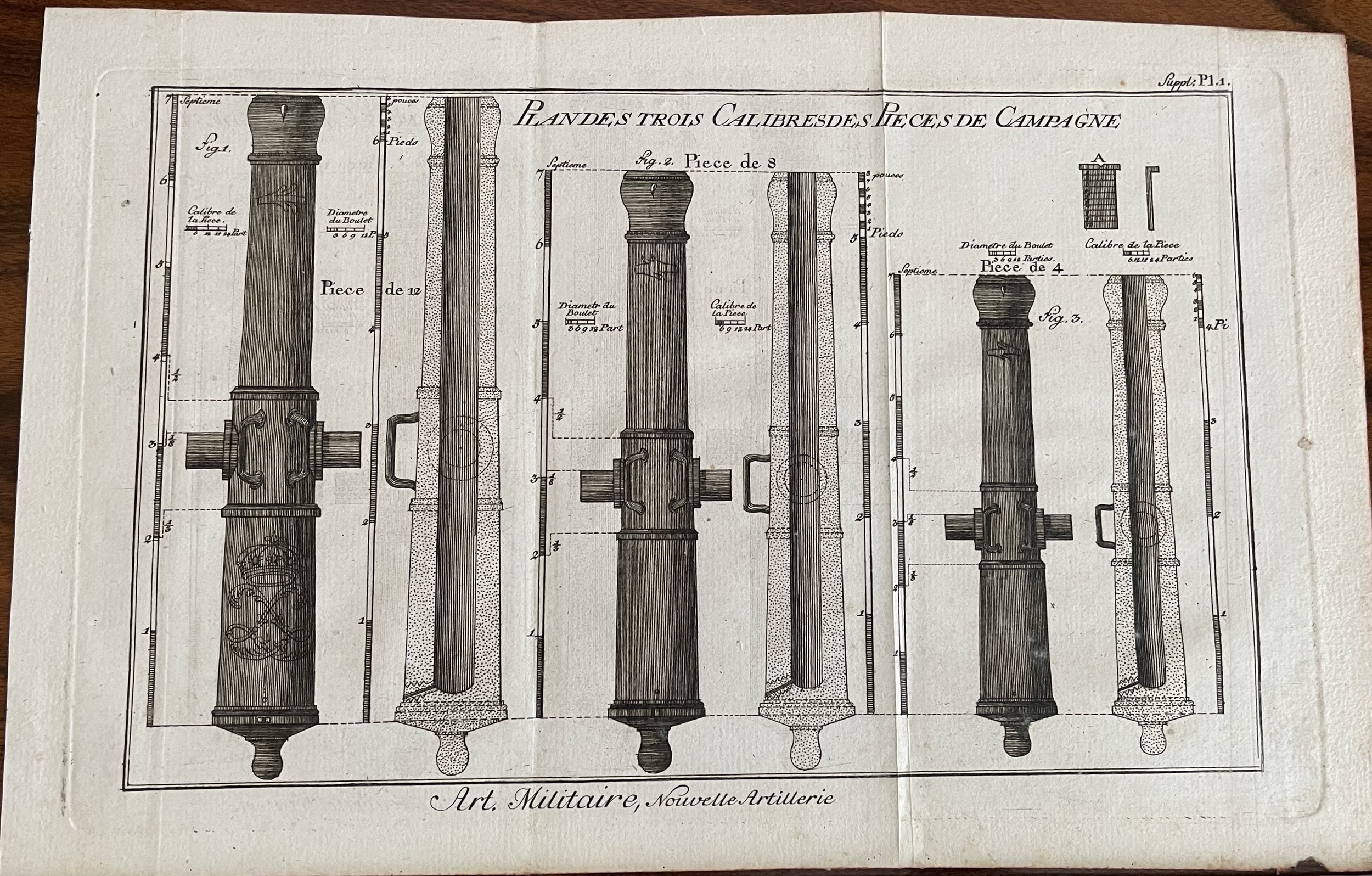 Image 1 of 9
Image 1 of 9

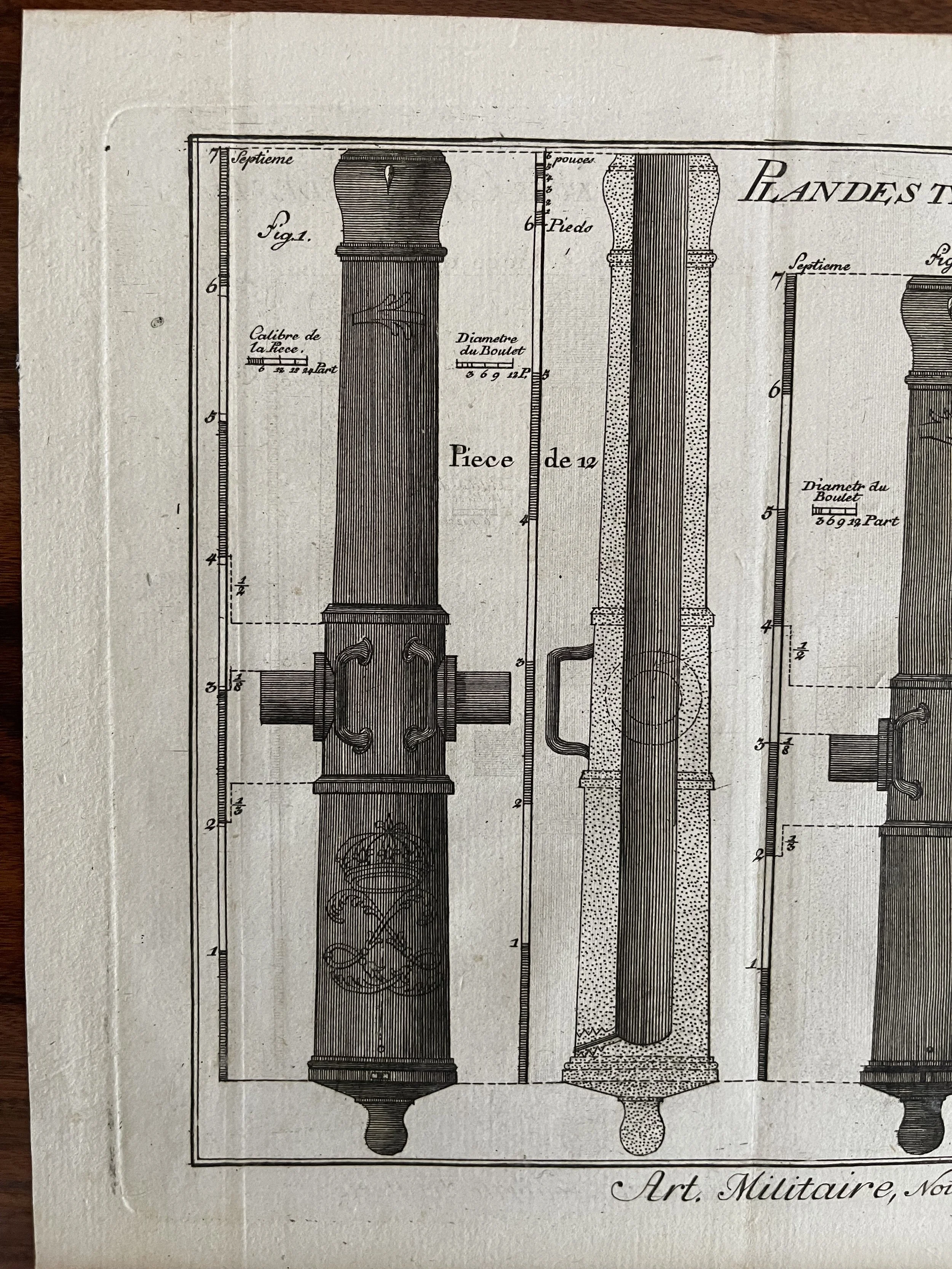 Image 2 of 9
Image 2 of 9

 Image 3 of 9
Image 3 of 9

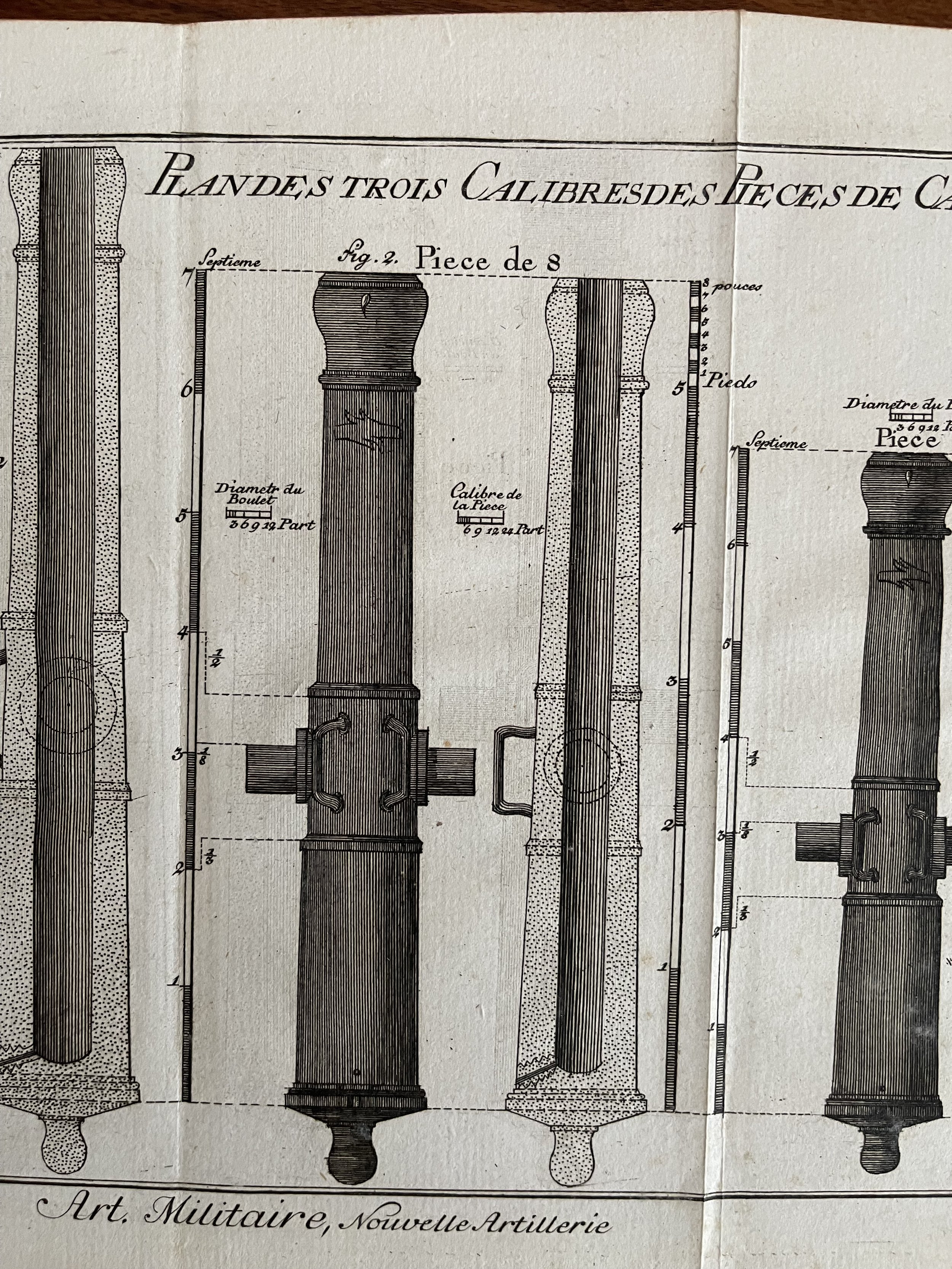 Image 4 of 9
Image 4 of 9

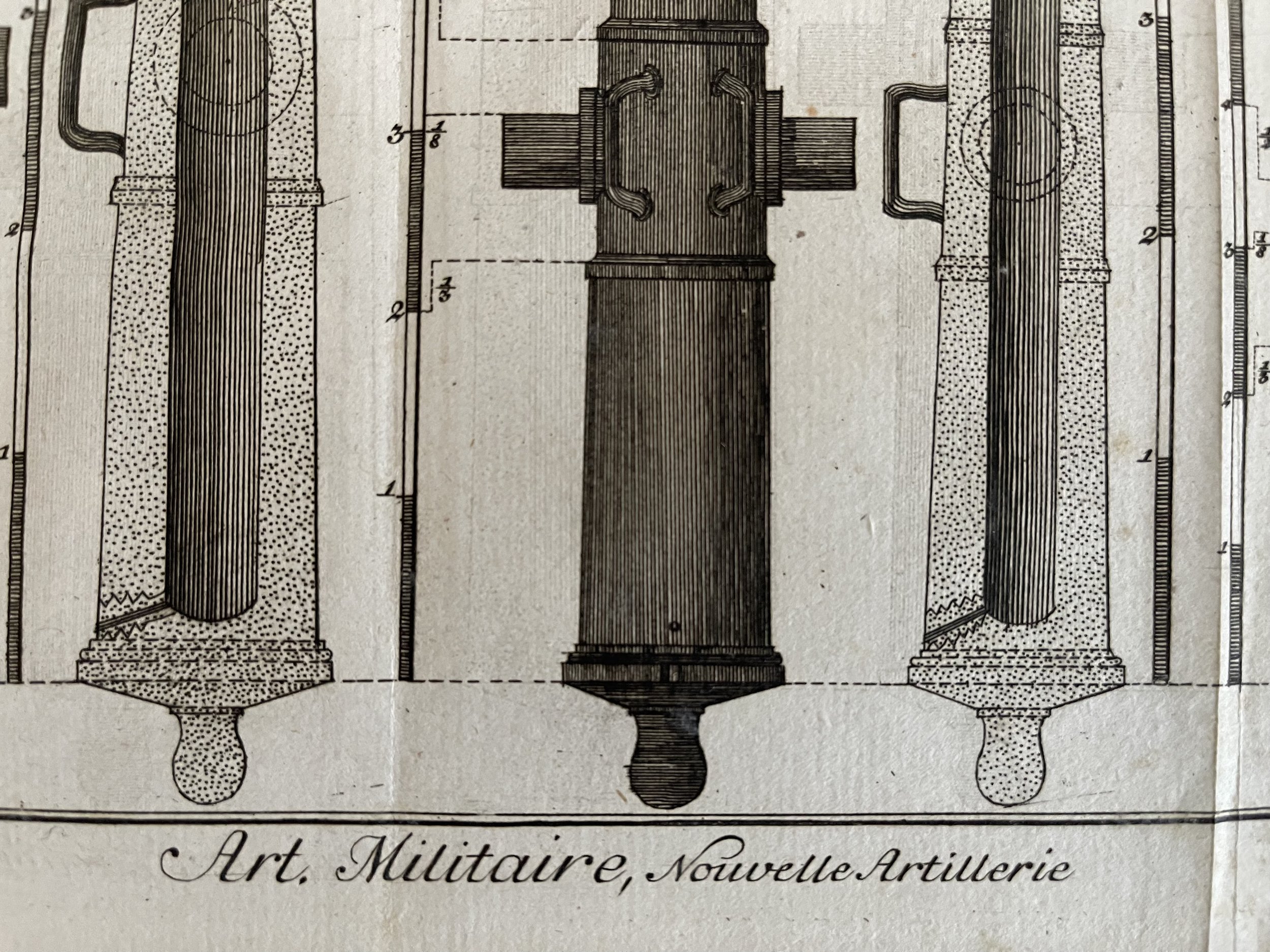 Image 5 of 9
Image 5 of 9

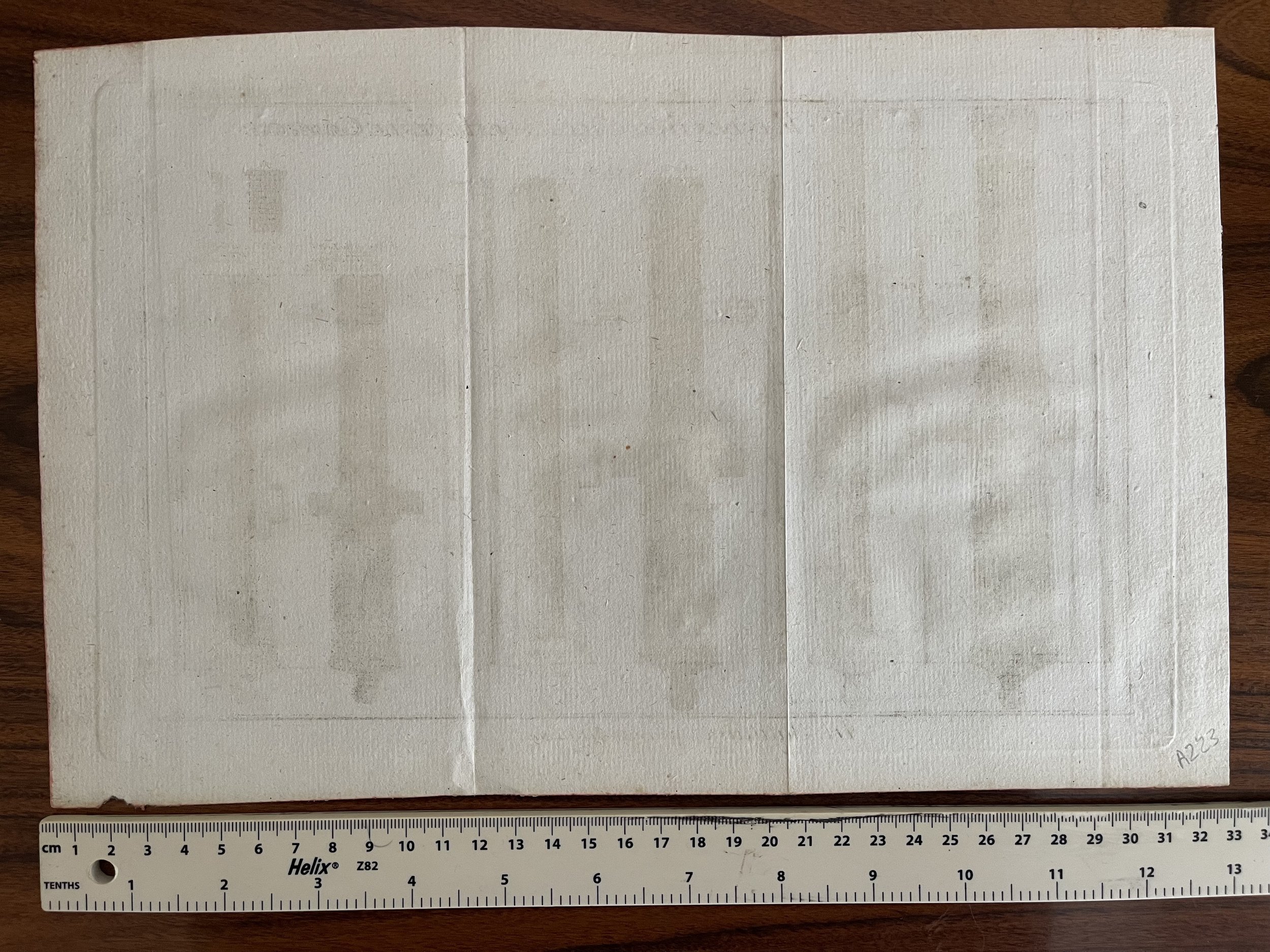 Image 6 of 9
Image 6 of 9

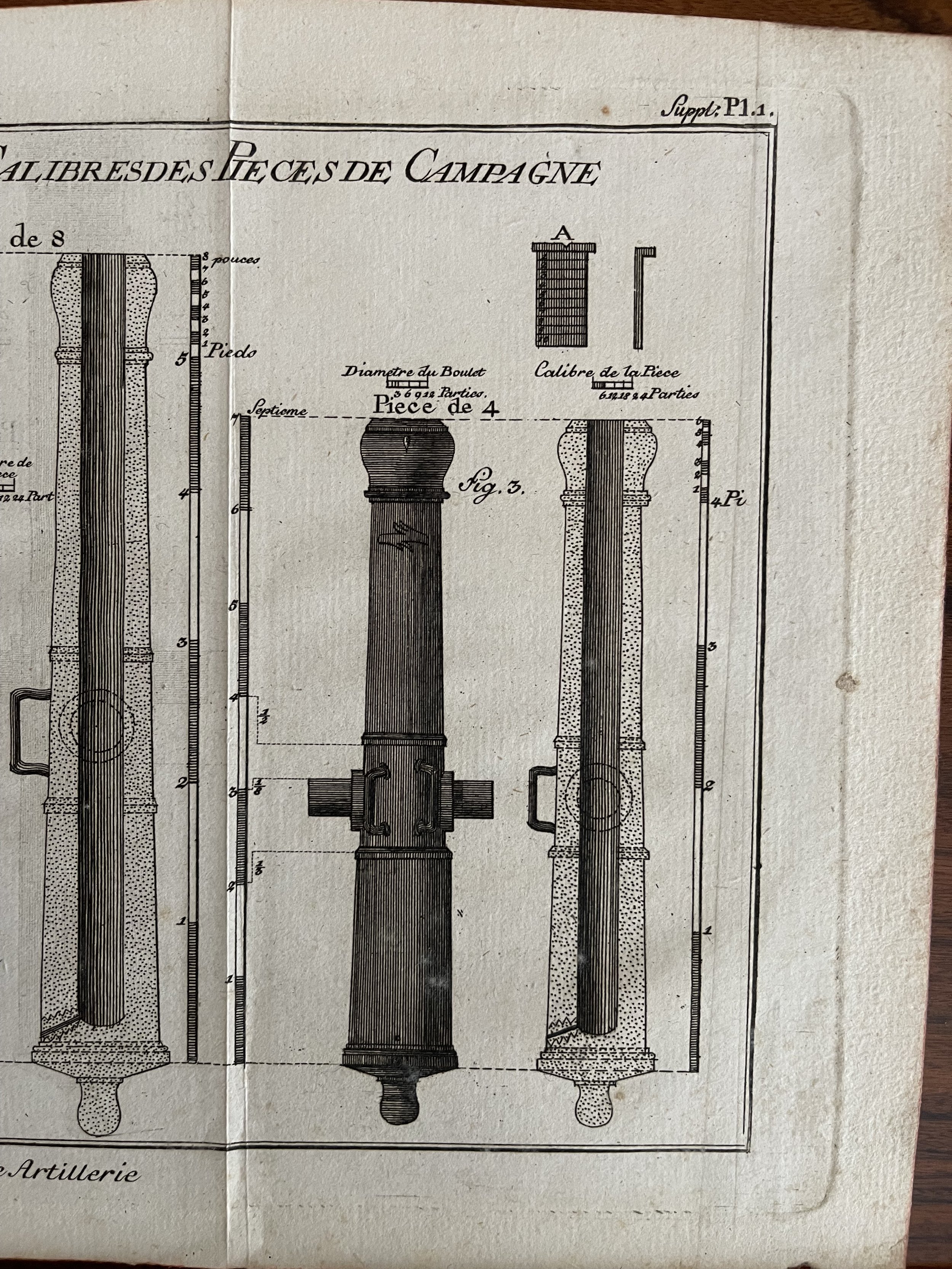 Image 7 of 9
Image 7 of 9

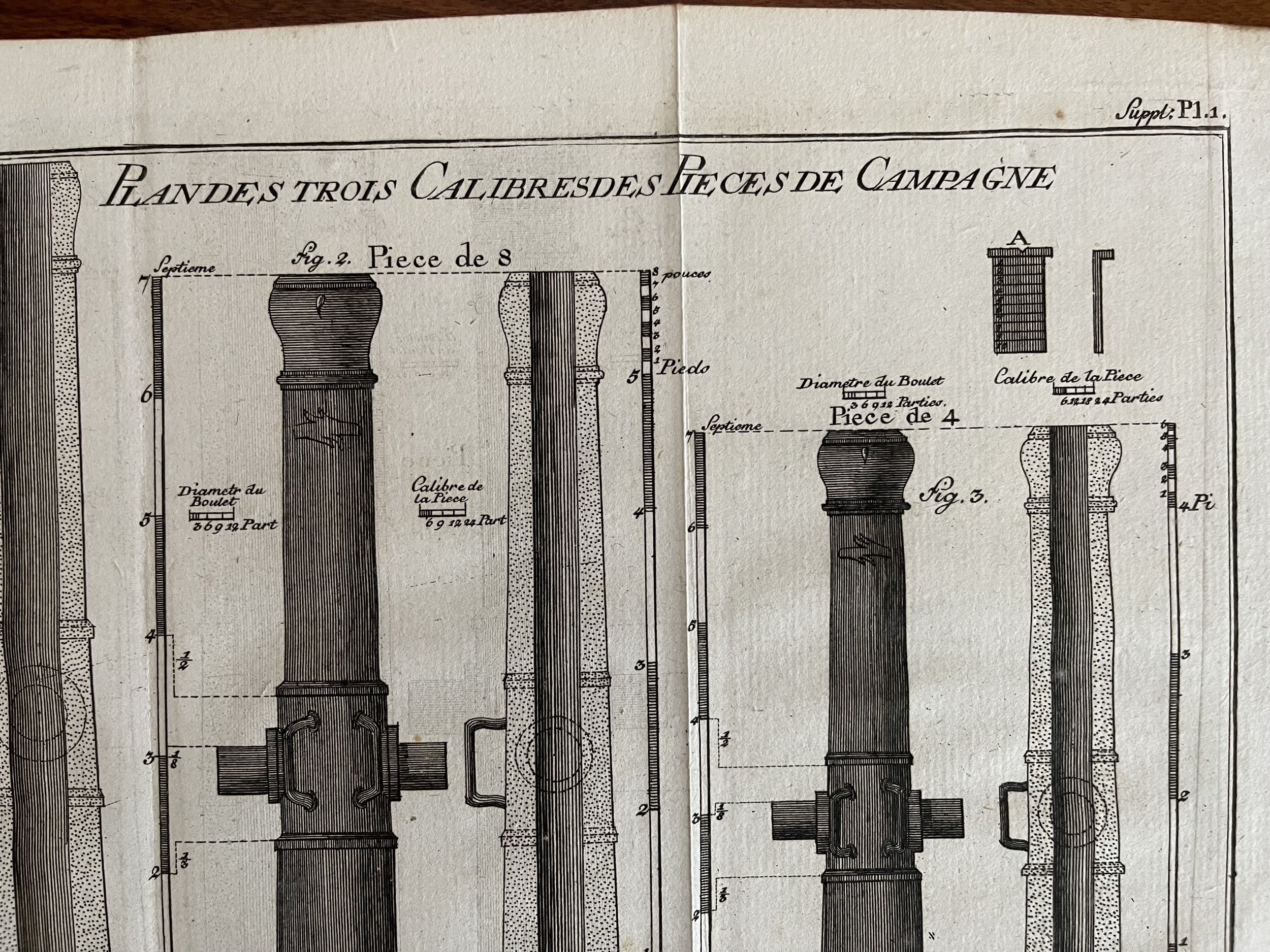 Image 8 of 9
Image 8 of 9

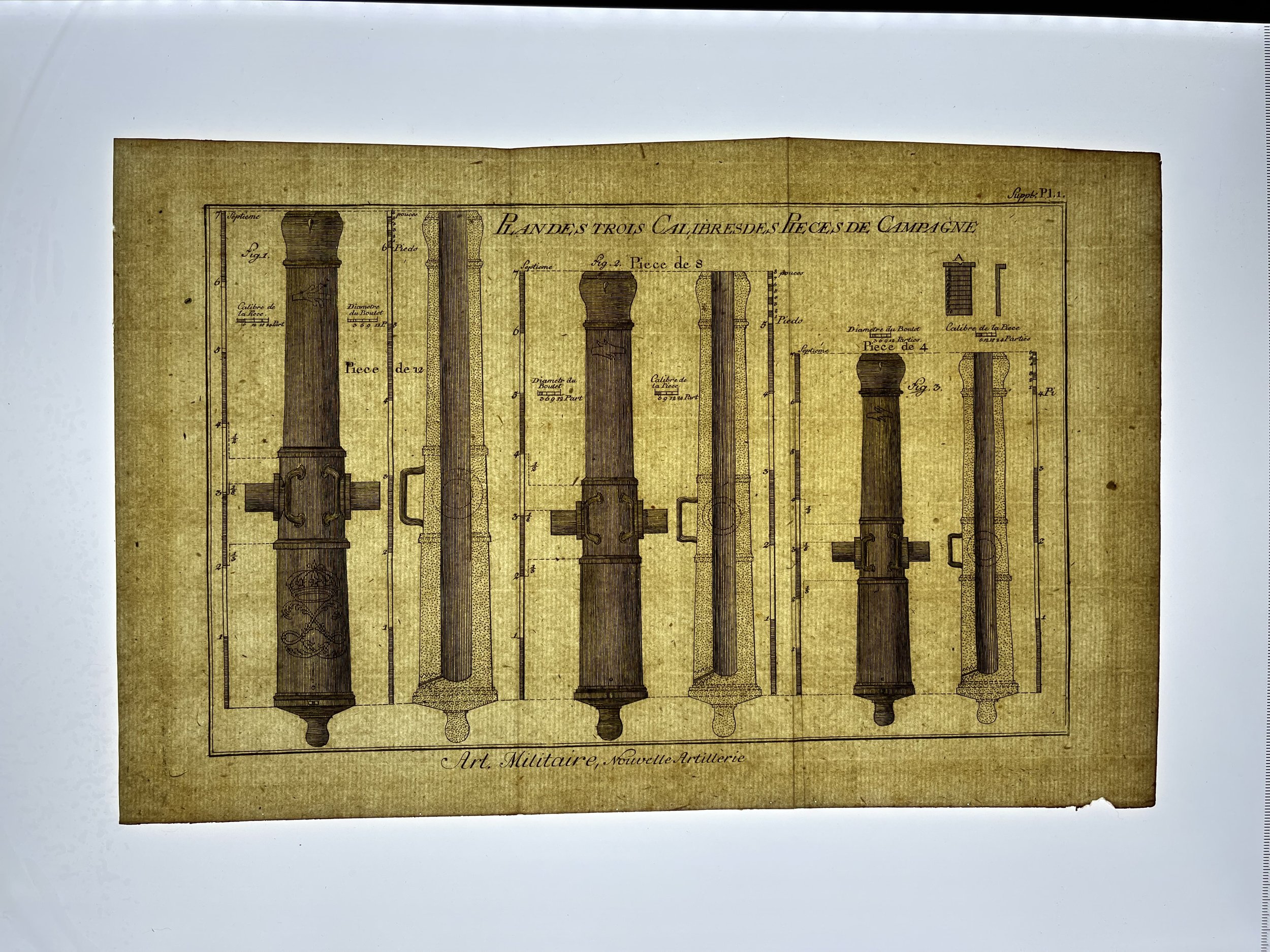 Image 9 of 9
Image 9 of 9










Art Militaire - Canons - Plan des Trois Calibres des pieces de Campagne - Denis Diderot 1768
The Great French Encyclopedie is a monument in the European intellectual history, which formed the base for the Age of Enlightenment and contributed to the French revolution. Diderot's aim was "to change the common way of thinking". Some of the more famous contributors were Rousseau, Daubenton, Montesquieu and Voltaire, but more than 140 people contributed with articles to the work and Diderot himself wrote almost 1000 articles on various subjects.
Denis Diderot (5 October 1713 – 31 July 1784) -Was a French enlightenment era philosopher, publisher and writer. Diderot was born in the city of langres, France and educated at the lycée louis le grand where, in 1732, he earned a Master of Arts degree in philosophy. Diderot briefly considered careers in the clergy and in law, but in the end chose the more fiscally challenge course of a writer. Though well respected in philosophical circles Diderot was unable to obtain any of the government commissions that commonly supported his set and consequently spent much of his life in deep poverty. He is best known for his role in editing and producing the encyclopédie which was one of the most revolutionary and impressive works of its time.
Initially commissioned as a translation of Ephraim chambers' cyclopaedia, or Universal Dictionary of Arts and Sciences, Diderot instead turned into a much larger and entirely new work of monumental depth and scope. Diderot’s encyclopédie was intended to lay bare before the common man the intellectual mysteries of science, art and philosophy. this revolutionary mission was strongly opposed by the powers of the time who considered a learned middle class it a threat to their authority.
During the encyclopédie production Diderot was imprisoned twice and the work itself was officially banned. nonetheless, publication continued in response to a demand exceeding 4000 subscribers. The encyclopédie was finally published in 1772 in 27 volumes. following the publication of the encyclopédie Diderot grew in fame but not in wealth. when the time came to dower his only surviving daughter, Angelique, Diderot could find no recourse save to sell his treasured library. in a move of largess, Catherine the II Russia sent an emissary to purchase the entire library on the condition that Diderot retain it in his possession and act as her "librarian" until she required it. When Diderot died of gastro-intestinal problems 1784, his heirs promptly sent his vast library to Catherine II, who had it deposited at the Russian National Library, where it resides to this day.
The Great French Encyclopedie is a monument in the European intellectual history, which formed the base for the Age of Enlightenment and contributed to the French revolution. Diderot's aim was "to change the common way of thinking". Some of the more famous contributors were Rousseau, Daubenton, Montesquieu and Voltaire, but more than 140 people contributed with articles to the work and Diderot himself wrote almost 1000 articles on various subjects.
Denis Diderot (5 October 1713 – 31 July 1784) -Was a French enlightenment era philosopher, publisher and writer. Diderot was born in the city of langres, France and educated at the lycée louis le grand where, in 1732, he earned a Master of Arts degree in philosophy. Diderot briefly considered careers in the clergy and in law, but in the end chose the more fiscally challenge course of a writer. Though well respected in philosophical circles Diderot was unable to obtain any of the government commissions that commonly supported his set and consequently spent much of his life in deep poverty. He is best known for his role in editing and producing the encyclopédie which was one of the most revolutionary and impressive works of its time.
Initially commissioned as a translation of Ephraim chambers' cyclopaedia, or Universal Dictionary of Arts and Sciences, Diderot instead turned into a much larger and entirely new work of monumental depth and scope. Diderot’s encyclopédie was intended to lay bare before the common man the intellectual mysteries of science, art and philosophy. this revolutionary mission was strongly opposed by the powers of the time who considered a learned middle class it a threat to their authority.
During the encyclopédie production Diderot was imprisoned twice and the work itself was officially banned. nonetheless, publication continued in response to a demand exceeding 4000 subscribers. The encyclopédie was finally published in 1772 in 27 volumes. following the publication of the encyclopédie Diderot grew in fame but not in wealth. when the time came to dower his only surviving daughter, Angelique, Diderot could find no recourse save to sell his treasured library. in a move of largess, Catherine the II Russia sent an emissary to purchase the entire library on the condition that Diderot retain it in his possession and act as her "librarian" until she required it. When Diderot died of gastro-intestinal problems 1784, his heirs promptly sent his vast library to Catherine II, who had it deposited at the Russian National Library, where it resides to this day.
Code : A223
Cartographer : Cartographer / Engraver / Publisher: Denis Diderot
Date : Publication Place / Date - France 1768
Size : Sheet size: Image Size: 21 x 33 cm
Availability : Available
Type - Genuine Antique
Grading - A
Tracked postage, in casement. Please contact me for postal quotation outside of the UK.